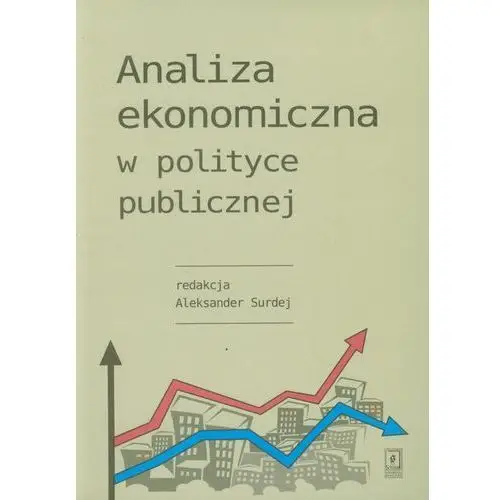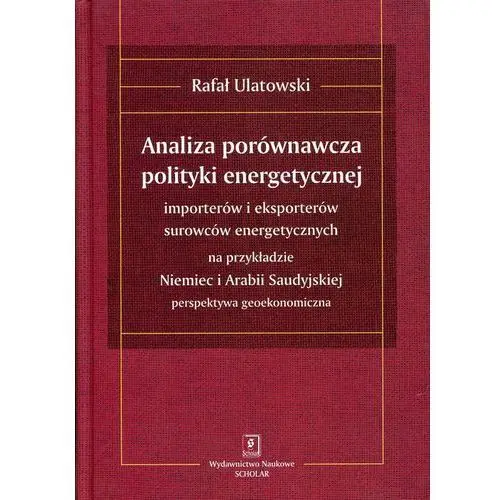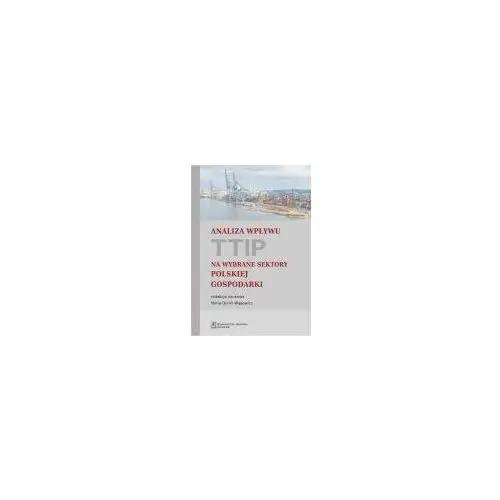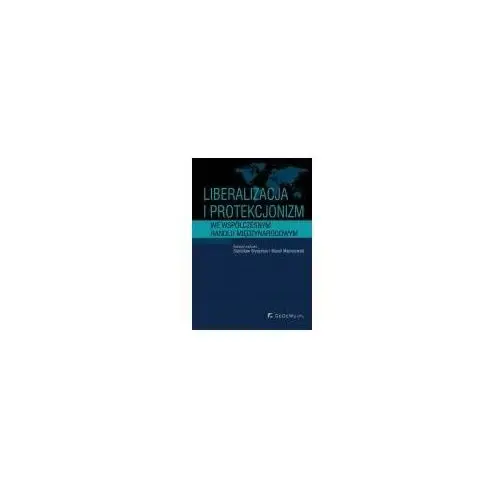Tytuł Capitalism and political power Autor Krzysztof Waśniewski Język polski Wydawnictwo Scholar ISBN 978-83-7383-882-6 Rok wydania 2017 Warszawa Wydanie 1 liczba stron 214 Format pdf Spis treści Contents
Introduction 7
Chapter 1. The constitutional state as a functional technology 11
1.1. The classical, sociological canon set aby Emile Durkheim
and Max Weber 15
1.2. Fernand Braudel and the "set of sets" theory 19
1.3. Jurgen Habermas and discursive politics 22
1.4. The utilitarian view of the state 25
1.5. Thomas Malthus and the demographic factor 28
1.6. The theory of social contract: Rousseau and Rawls 30
1.7. Herbert Hart’s theory of law 33
1.8. The division of powers in political systems 35
1.9. Attempt at the classification of political systems 38
1.10. The economic role of political institutions
and Barry Weingast’s theory 40
1.11. Recent evolution in political systems and in international
relations 45
1.12. Changes in international law 49
1.13. Migrations 53
1.14. International aid as an aspect of international relations 55
1.15. Investor-state disputes and international law 61
1.16. A tentative conclusion: political systems seen as technologies
with a lifecycle based on efficiency 73
Chapter 2. The fiscal function of constitutional states 90
2.1. The main fiscal trends observable in the sample of 77 countries 96
2.2. Bank lending, private debt and public debt 102
2.3. The general issue of public debt 103
2.4. Types and clusters of political systems in the sample
of 77 countries 118
2.5. Fiscal stances typical for political systems 121
2.6. Conclusion – the institutional foundations of capital appropriation
in political systems 133
Chapter 3. Changes in the ways that capitalism works 137
3.1. Environmental challenges 138
3.2. Accumulation and depreciation of capital stock in the global
economy 146
3.3. The velocity of money 149
3.4. The velocity of money and financial markets 159
3.5. National case studies 167
3.5.1. United States 169
3.5.2. Bolivia 171
3.5.3. New Zealand 175
3.5.4. Mexico 181
3.5.5. Israel 184
Concluding remarks 187
Bibliography 199
Index of names 210
List of Tables 213
List of Figures 214
Introduction 7
Chapter 1. The constitutional state as a functional technology 11
1.1. The classical, sociological canon set aby Emile Durkheim
and Max Weber 15
1.2. Fernand Braudel and the "set of sets" theory 19
1.3. Jurgen Habermas and discursive politics 22
1.4. The utilitarian view of the state 25
1.5. Thomas Malthus and the demographic factor 28
1.6. The theory of social contract: Rousseau and Rawls 30
1.7. Herbert Hart’s theory of law 33
1.8. The division of powers in political systems 35
1.9. Attempt at the classification of political systems 38
1.10. The economic role of political institutions
and Barry Weingast’s theory 40
1.11. Recent evolution in political systems and in international
relations 45
1.12. Changes in international law 49
1.13. Migrations 53
1.14. International aid as an aspect of international relations 55
1.15. Investor-state disputes and international law 61
1.16. A tentative conclusion: political systems seen as technologies
with a lifecycle based on efficiency 73
Chapter 2. The fiscal function of constitutional states 90
2.1. The main fiscal trends observable in the sample of 77 countries 96
2.2. Bank lending, private debt and public debt 102
2.3. The general issue of public debt 103
2.4. Types and clusters of political systems in the sample
of 77 countries 118
2.5. Fiscal stances typical for political systems 121
2.6. Conclusion – the institutional foundations of capital appropriation
in political systems 133
Chapter 3. Changes in the ways that capitalism works 137
3.1. Environmental challenges 138
3.2. Accumulation and depreciation of capital stock in the global
economy 146
3.3. The velocity of money 149
3.4. The velocity of money and financial markets 159
3.5. National case studies 167
3.5.1. United States 169
3.5.2. Bolivia 171
3.5.3. New Zealand 175
3.5.4. Mexico 181
3.5.5. Israel 184
Concluding remarks 187
Bibliography 199
Index of names 210
List of Tables 213
List of Figures 214





















